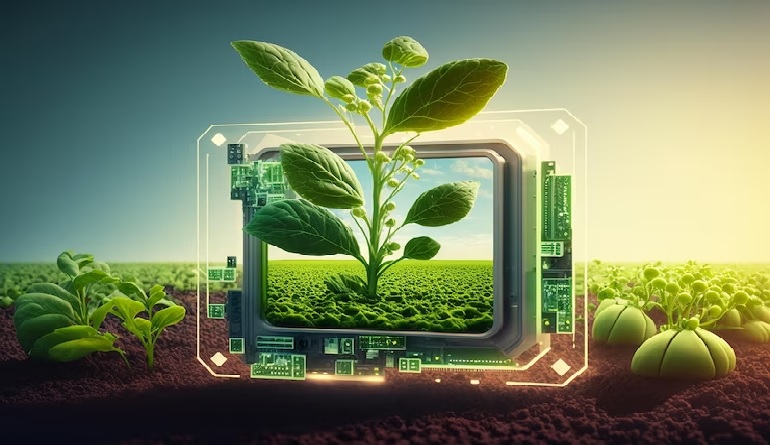
ATM News Network: Agriculture forms the backbone of India's economy, employing a significant portion of its population and contributing to its food security. However, when it comes to technological advancements in agriculture, India has lagged behind nations like Israel. This article aims to explore the reasons behind India's technological gap in agriculture and propose strategies to upgrade the sector, drawing inspiration from Israel's success.
India's agriculture sector has immense potential for technological advancement, and bridging the gap with nations like Israel requires a multi-faceted approach. By addressing the challenges related to land holdings, access to capital, infrastructure, and knowledge gaps, India can pave the way for a more technologically advanced agricultural sector. Drawing inspiration from Israel's success in research and development, water management, precision agriculture, and start-up culture, India can unlock its agricultural potential and contribute to sustainable food production and rural development.
Challenges Hindering Technological Advancement in Indian Agriculture:
1. Fragmented Land Holdings: India's agriculture sector is characterized by small and fragmented landholdings, which make it difficult to adopt large-scale mechanization and advanced technologies. Consolidation of land holdings through policy reforms can enable farmers to pool their resources and invest in modern farming techniques.
2. Limited Access to Capital: Many farmers in India face financial constraints that hinder their ability to invest in advanced agricultural technologies. Improving access to credit and providing subsidies or incentives for adopting modern techniques can help alleviate this challenge.
3. Inadequate Infrastructure: Insufficient irrigation facilities, inadequate storage and transportation infrastructure, and unreliable power supply are prevalent issues in rural areas of India. Upgrading infrastructure, especially in rural regions, is essential to support the adoption and functioning of advanced agricultural technologies.
4. Lack of Awareness and Training: Many Indian farmers, especially those in remote areas, lack awareness about the potential benefits of modern agricultural technologies. Enhancing agricultural extension services and organizing training programs can impart knowledge and empower farmers to make informed decisions about adopting new techniques.
Learning from Israel's Success
Israel has emerged as a global leader in agricultural technology, primarily due to its focus on innovation, research and development, and efficient resource management. India can draw valuable lessons from Israel's achievements in the following ways:
1. Research and Development: Increased investment in agricultural research and development is crucial for creating innovative solutions tailored to India's unique farming conditions. Collaborations between research institutions, farmers, and private enterprises can facilitate the development and adoption of cutting-edge technologies.
2. Water Management: Israel's expertise in water management has allowed it to thrive in arid conditions. India, with its diverse agro-climatic zones, can benefit from implementing efficient irrigation systems, such as drip irrigation and precision farming techniques, to optimize water usage and increase productivity.
3. Precision Agriculture: Precision farming techniques, which involve using sensors, drones, and data analytics, can significantly enhance productivity while minimizing resource wastage. Encouraging the adoption of precision agriculture can help Indian farmers monitor crops, soil conditions, and weather patterns more effectively.
4. Start-up Ecosystem: Promoting a vibrant start-up ecosystem focused on agricultural technology can drive innovation and provide scalable solutions to the challenges faced by Indian farmers. Offering incentives, funding, and incubation support to agricultural technology start-ups can spur the development of localized solutions.